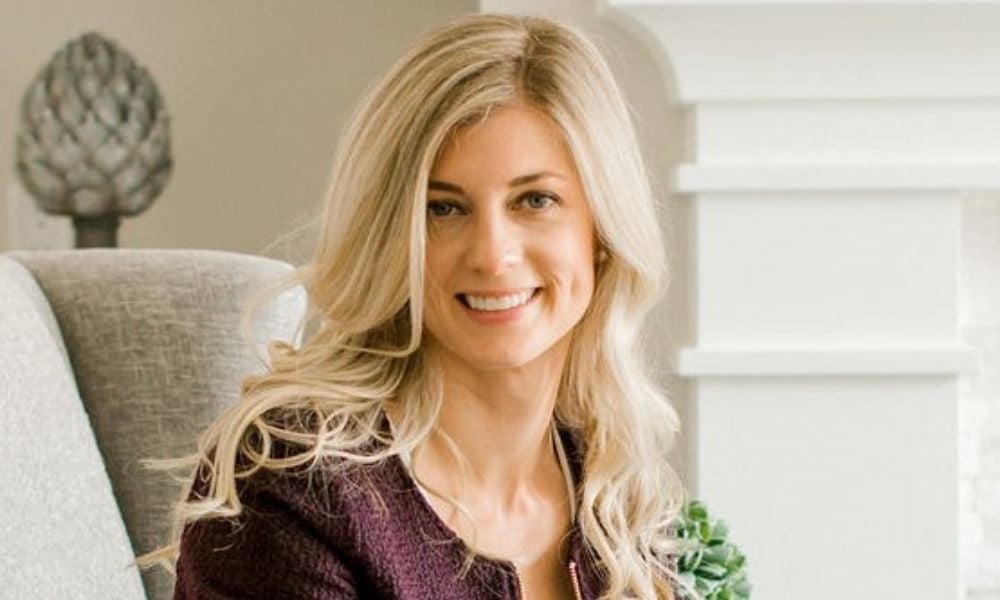Senior investment advisor is launching an online course to help 'busy women on the go'

The pandemic has created a sea-change in what women want to know about their finances. So, Julie Shipley-Strickland, a senior investment advisor in Calgary, is launching an online course to teach them.
“It’s going to be available on my website and then my social media channels,” she told Wealth Professional. “It’s a course that I’ve launched with financial literacy in mind. So, what are the common questions I get from clients? What knowledge are they commonly seeking?’”
Shipley-Strickland is both an insurance and financial advisor in Julie Shipley-Strickland Wealth and Risk Management with Wellington-Altus Private Wealth in Calgary.
“I’m such a relationship-focused person that I want to spend my meetings hearing about their family, their goals, and what they’re after. I don’t necessarily want to spend it defining different types of life insurance or comparing a TFSA to an RSP,” she said. “If they come prepared with that knowledge, we’re able to have the discussions around other things and integrate those, for sure, but it doesn’t have to be forefront of the meeting. So, we can have the deeper conversations in our meetings, which I really enjoy and that creates that trust between my clients and myself. That’s what I’m doing this for.”
Shipley-Strickland, who deals with both insurance and investment advising, said her clients have been seeking more financial information since the pandemic began. They want to discuss developing their wills, even if they’re referred to a lawyer. They’re also looking much more at protection – critical illness, disability, and life insurance.
“In the past, I had to initiate conversations, but now clients are more coming to me,” she said, noting the pandemic’s uncertainty has impacted her female entrepreneur and professional clients as well as young moms. “I’m having clients more and more coming to me with this in the forefront of their mind, whereas it wasn’t something they thought of as much in the past. I’ve definitely getting asked a lot more about that in the last three to six months than I have in my entire career.
“It’s not all about ‘taking my money and making more’, either. It’s very much about how do I protect those around me that I care about? But that also transpires with investments.”
Shipley-Strickland has also noticed that more female clients want a nest egg than ever before. While the entrepreneurs used to plow everything back in their businesses, they now want some cash accessible if they need to shut down their business for awhile or care for a loved one. She used to encourage clients to have that, but they’re now requesting it.
She doesn’t think it’s just a COVID aberration, either, but more something that will continue as clients seek protection for other life-disrupting events. “So, it feels like the portfolios are a little bit more well-rounded,” she said.
Shipley-Strickland has also noticed that clients are now willing to take on a bit more risk in their portfolios, too. Instead of putting everything back into their businesses, they may save 10% for cash or low-risk and put another five to 10% into a medium or higher risk investment. “I think it comes back to that fundamental thing of protection: they don’t want to put all of their eggs in one basket,” she said. “This spreads out the risk.”
Given the shifts she’s seeing, and her own interest in financial literacy, she’s prepared her course as clients ask for more.
“I’m a huge proponent of education because I think, once you’re educated, you can make the best decision for yourself and your family,” she said. “So, I spent this summer building a course for some of my clients or anyone who would like to purchase it. It’s based on some of what I’ve seen my clients really desire in the knowledge and education spectrum.”
At press time, she expected the course to have six modules for educated women who want to achieve financial freedom, even while running their own businesses and raising their families. She expects to expand her educational offerings in 2022, so is also considering a podcast for women on the go or some investment counselling to ensure women can not only grow their wealth, but support good companies that are doing well for their employees, shareholders, and communities.
“Once you’re educated, you’ve got power to make the decisions you want to make,” she said, noting she expects the idea will catch on with more clients as she starts to advertise it. “I think this is going to open their eyes, and then they’re going to continue down that spectrum. I don’t think this desire for more financial education is going to end anytime soon.”



